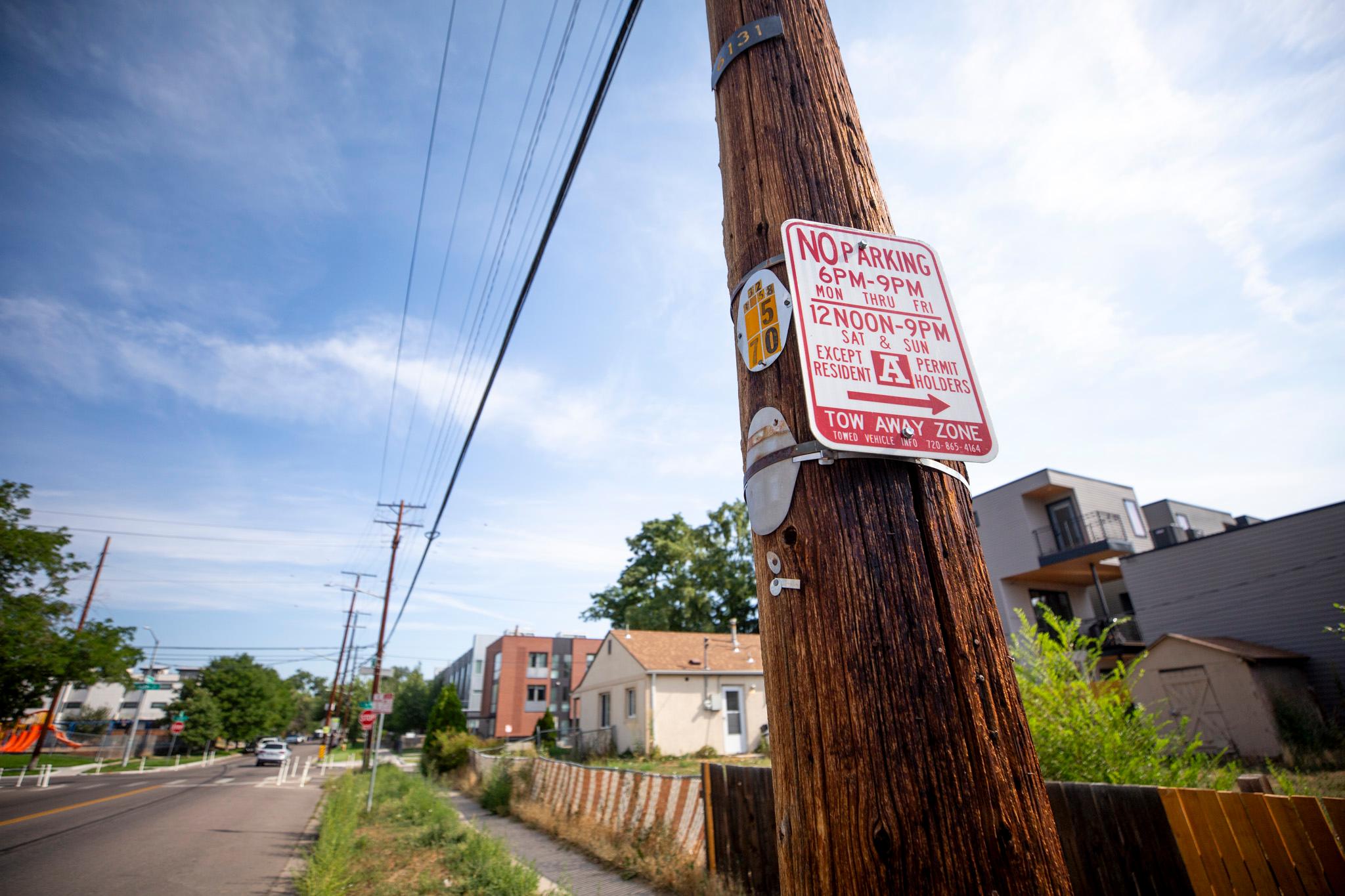As long as Denverites are driving, residents are going to have trouble finding curbside parking in Capitol Hill and other densely populated areas.
But there’s a team of city workers who are working to make parking a little less frustrating — at least for residents who live in those neighborhoods.
Scott Burton is a principal city planner with the Denver Department of Transportation and Infrastructure. He oversees a team that’s responsible for “curbside area management plans,” or CAMPs.
“A lot of the areas that we've worked in ...have a lot of inconsistent parking restrictions, where the restrictions have been implemented over decades,” Burton said.
Since 2015, the city has implemented 14 CAMPs, and more are on the way.
The basic idea: make parking more restrictive for visitors, while offering easier parking for those who live in the area.
CAMPs usually allow residents to buy a parking permit that exempts them from time limits for curbside parking time. Permits cost $20 or $25, which needs to be renewed every year.
“Every single one, with the exception of the stadium area, has resulted in an increase in the number of permitted blocks in the area,” Burton said.
Meanwhile, each plan can add a variety of new parking restrictions.
For example, the Berkeley Park CAMP limited free parking to two or three hours on most of Tennyson Street and its side streets. The Cherry Creek North CAMP added parking meters across most of the neighborhood. (Residents have to pay for those meters, too.)
Plans can also include new ADA-compliant parking spots or parking areas
Other areas with plans include parts of Five Points, Capitol Hill, Baker and La Alma-Lincoln Park.
Burton’s team is currently working on four CAMPs for 7th Avenue near the Governor’s Residence, Cherry Creek, the Highlands, and the neighborhoods surrounding Empower Field at Mile High.
Burton’s team has already implemented some changes to those areas, and could make further tweaks depending on feedback.
Your neighborhood could be next — especially if you ask for it.
Burton’s team receives constant complaints and feedback about parking. He said it helps them identify where to launch new CAMPs.
“Typically people will flag that through their council office or 311,” he said. “Sometimes we'll get it from a business improvement district or a group of merchants in a certain area."
Neighborhoods with “inconsistent or outdated restrictions,” “a high volume of resident concerns, complaints, requests,” and where density is increasing are typically prioritized by Burton’s team.
“If there's an area that's been impacted significantly by bike lanes or transit lanes, and therefore there just is not as much parking as there used to be, that's another factor that we would look at when determining whether or not to kick off,” he added.
Editor's note: This story was updated to reflect that residential parking permits have to be renewed every year.











